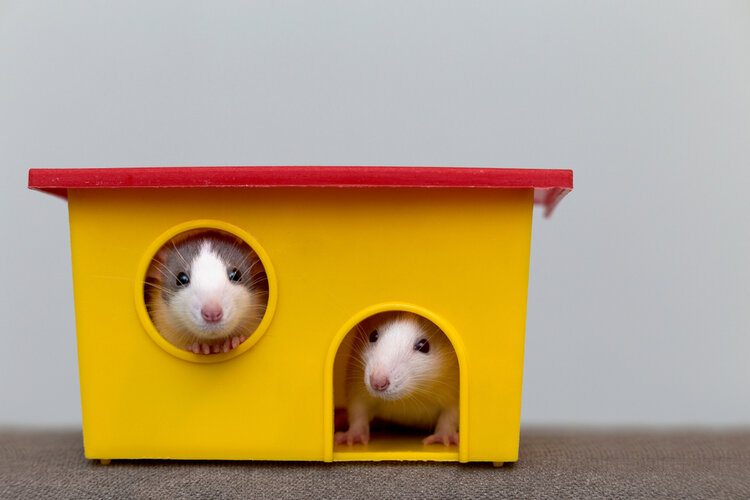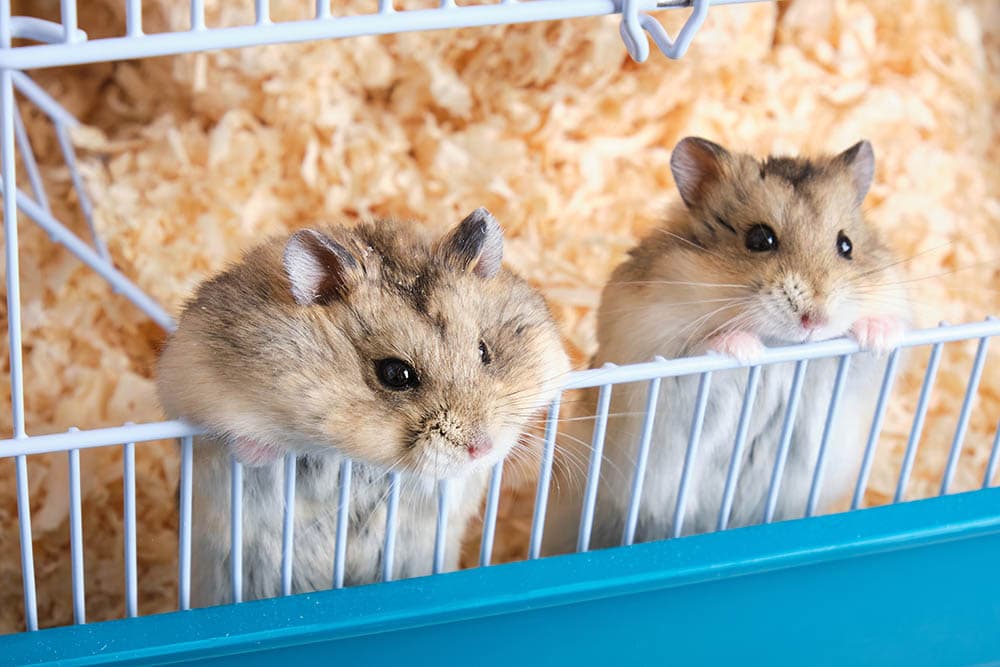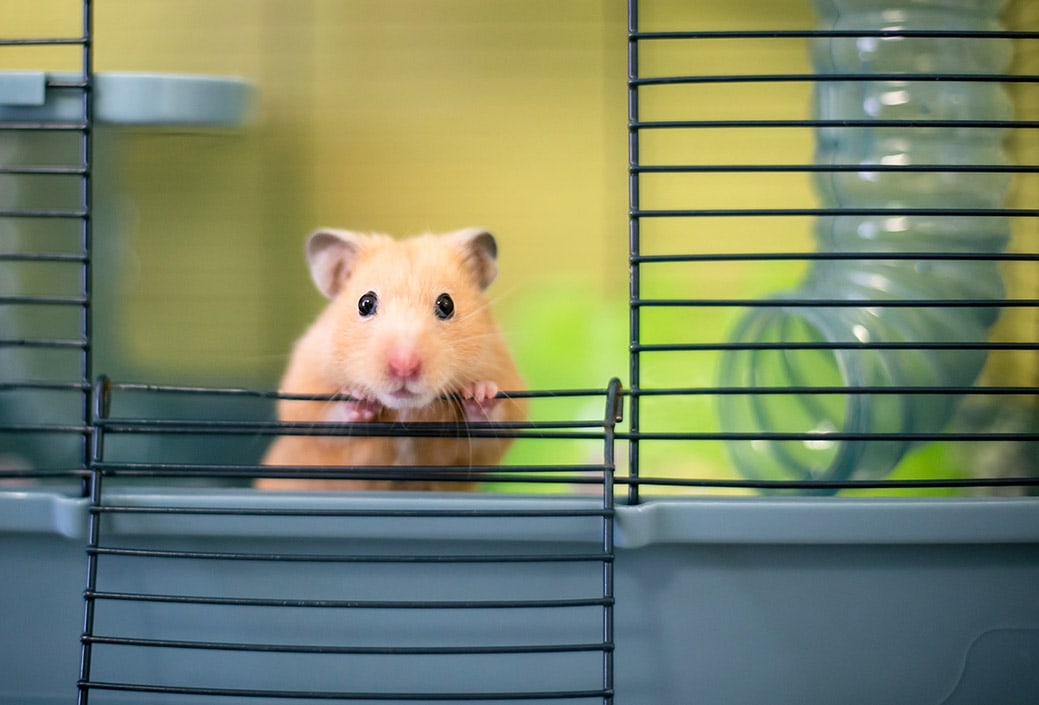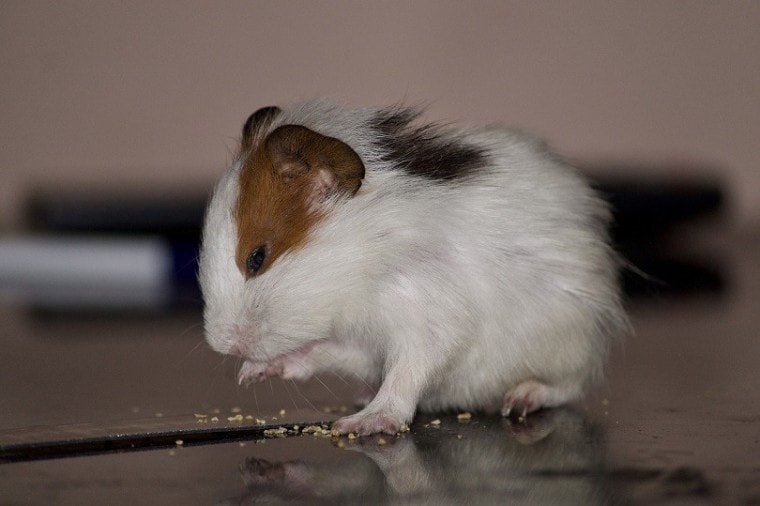
Hamsters and other gerbils don’t need much variety in their diet. Instead, they like to follow a simple meal layout made up of high-quality commercial pet food mixes. These foods meet all their nutritional needs.
Even if they have everything they need in store-bought food, they are your pet, and you probably want to spoil them. Although treats should never make up more than 10% of any pet’s diet, a special treat every couple of days can be fun.
The twist is to make sure that it is healthy for them instead of hurting them or encouraging them to gain weight. Instead of trying to remember all the different foods that hamsters can’t eat, refer to this list.
Top 16 Things Not to Feed Hamsters:
1. Bitter Almonds

Why the emphasis on only bitter almonds? Because sweet almonds are perfectly fine for a hamster. Bitter almonds have trace amounts of cyanide, a deadly poison. If we were to take in the treat, it wouldn’t do anything harmful to us. However, our tiny friends can’t handle even the smallest amount, and the almond could poison them.
Keep in mind that even if you buy a pack of sweet almonds from a store, it doesn’t mean that you are entirely out of the woods. The U.S. Department of Agriculture allows every bag of sweet almonds to have 1% bitter almonds. Even that 1% means taking the risk of killing a hamster.
Almonds should be considered an occasional treat, anyway, because they are high in fat. Feeding hamsters foods with high-fat content causes them to gain harmful quantities of weight.
2. Potatoes

Think along the lines of the nutritional value of potato chips when you consider whether you should feed your hamster potatoes. Although they taste great, they don’t give hamsters anything of substance in their bodies.
You should never feed a hamster raw potatoes as they contain a toxic substance called solanine. Fried potatoes are another big no no. A plain boiled or baked potato might be offered on rare occasions, but the reality is that potatoes are filled with starches and cause your hamster to chunk up quickly. They don’t need “fillers” in their meals.
3. Celery

Since hamsters are omnivores, many people think that any plant should be fine for them to eat. While this is true for quite a few plant varieties, making this assumption can be harmful.
Celery is one of those plants that hamsters should not eat. They are not toxic to a hamster but instead, present a choking hazard because of their string texture. If you want to feed them celery, cut them into tiny pieces to make them smaller. Cutting them makes it so those strings are short enough to be safe.
4. Onion Family

Any plant in the onion family tends to be toxic for small mammals like hamsters, rabbits, and guinea pigs. These plants include things like:
Not feeding them plants in this family means not feeding them the plant’s bulbous, vegetable part, as well as the leaves.
5. Spicy and Seasoned Foods

Think of the kinds of things that hamsters would find to eat in the wild. They are not going to have a five-course meal filled with different flavors, nor do they want it. Anything spicy or too flavorful can end up irritating your hamster’s GI tract. Avoid this by not feeding them table scraps. Even simple flavorings like salt and pepper can make food harder to digest.
6. Kidney Beans

Most beans are a good idea to avoid when feeding a special treat to your hamster. They give them gas and tend to lead to bloating because they are hard for them to digest. However, kidney beans are dangerous because they are toxic when uncooked. Even cooked, they present issues to hamsters, so it is best to avoid feeding them altogether.
7. Light Green Leafy Veggies

Light green leaves present digestive issues for hamsters. They don’t have much nutritional value. Instead, they cause diarrhea. Instead, choose greens that are darker in color, such as dandelion leaves, romaine lettuce, kale, and carrot tops.
8. Refined Sugars and Artificial Sweeteners
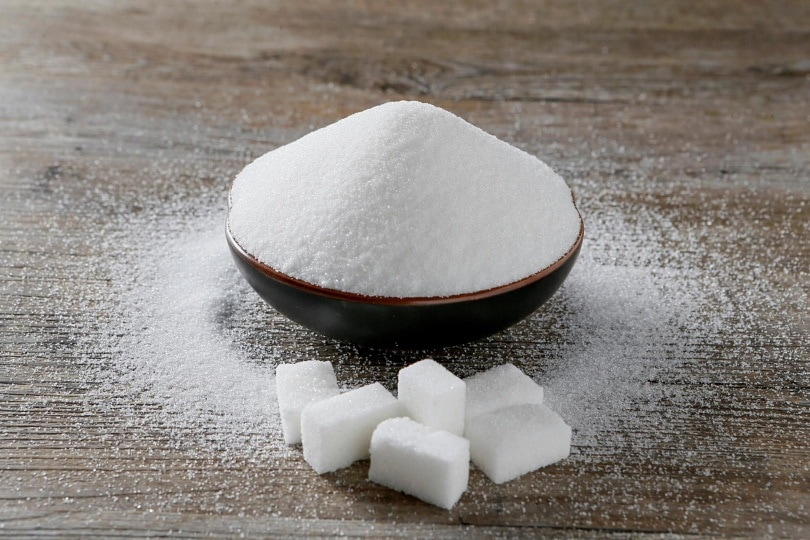
Just like the rest of us, hamsters love a tasty, sugary treat. If they have the choice between a food loaded with sugars and one that is healthier, they will always choose the sugar. Avoid feeding your hamster sugar, candy, or artificial sweeteners. Limit their dietary options and only give them fruit treats once or twice a week.
9. Chocolate
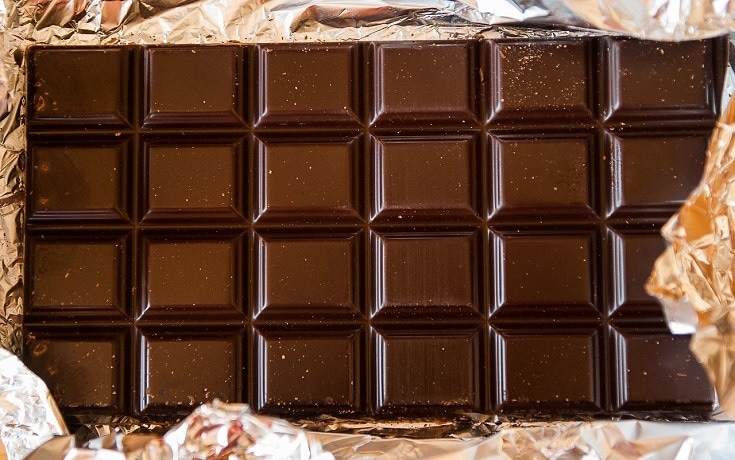
Just like the rest of us, hamsters love a tasty, sugary treat. If they have the choice between a food loaded with sugars and one that is healthier, they will always choose the sugar. Avoid feeding your hamster sugar, candy, or artificial sweeteners. Limit their dietary options and only give them fruit treats once or twice a week.
10. Tomato Leaves and Stems

Although tomatoes can be a treat that is okay for hamsters to eat, they should be a rare treat. The leaves and the stems cannot be included, even though they are dark green. They are toxic to a hamster, and too much of them can end up killing your hamster.
11. Plants Treated With Pesticides

Any plant that you choose to feed your hamster should be checked to verify if it is right for them. However, this isn’t the last step. Make sure to wash it off after picking it up, even if it is fresh.
Plants treated with chemicals of any kind can present significant health issues for a hamster. The reason for this is their small size. Even if the chemical amount has been approved for human consumption, trace amounts can be damaging for a hamster.
12. Seeds

Seeds might seem like the perfect, bite-sized snack for a hamster. However, they are still not small enough to be safe and can present a choking hazard. Even if a seed is the right size for them to swallow and digest, many are high in fat. Anything with high-fat content should be avoided to keep them at a balanced weight.
Beyond the high-fat content and choking hazard, many fruit seeds contain trace amounts of a lethal poison called cyanide. Although we can eat them, usually accidentally, these seeds often have enough cyanide to kill a hamster. These include apple, cherry, and pear seeds, among others.
13. Other Animal Food

Since it is good to never feed hamsters meat, you should recognize that they should never eat other animals’ kibble either. For a balanced diet, carnivores and omnivores need a certain amount of protein. This protein is mixed into the kibble and can cause issues for a hamster. Other animal foods to avoid include those for cats, dogs, or ferrets, to name a few.
14. Caffeine

Hamsters regulate their heart rates just fine by themselves. Their hearts already beat very quickly, at 5-10 beats per second. Any amount of caffeine ends up making their heart rate skyrocket further and can cause cardiac arrest or other cardiovascular issues.
15. Plants High in Oxalic Acid

Some plants are high in oxalic acid, and any acidic food should be avoided for a hamster. Greens like rhubarb leaves have high amounts of this substance. To help you identify what kinds of plants these include, a good rule of thumb is anything that has naturally colored leaves with red or yellow veins with higher oxalic acid levels. Some of these include:
16. Dairy Products
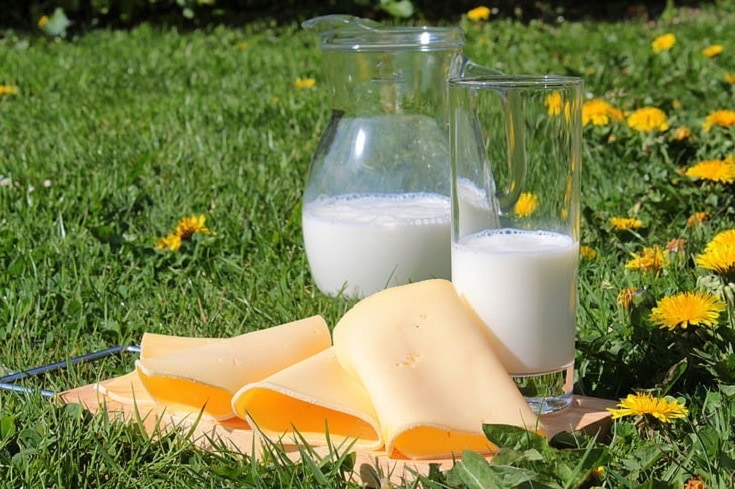
Other than their mother’s milk, there is no reason that a hamster would find a dairy product lying out in the wild. Feeding milk or other dairy products to your hamster can lead to weight gain and won’t give your pet the nutrition it needs. Many serious issues can develop from this. Avoid products like:
 Conclusion
Conclusion
Keeping your hamster as healthy and happy for all of their life is a top priority for any hamster owner. Knowing what they should and should not eat is a big step in the right direction to protecting them. There are so many treats that supplement a hamster’s diet with vital nutrients. Feed them these in moderation to bond with your furry friend and spoil them a bit.
Featured Image Credit: justus_joseph, Pixabay




